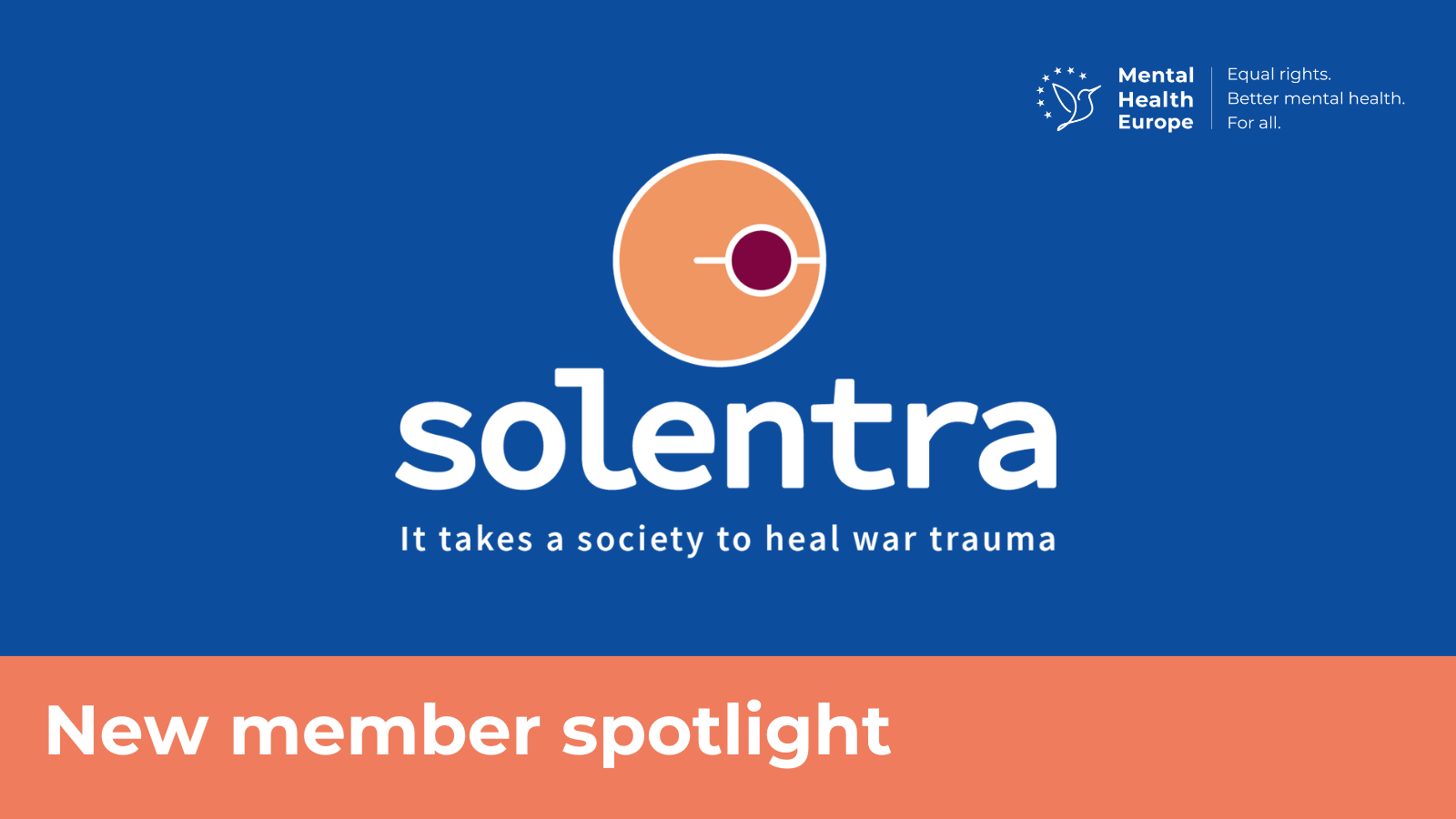Solentra – ‘Solidarity and Trauma’

The organisation
Solentra is a Belgian non-profit organization which stands for ‘Solidarity and Trauma’ and was founded in 2005. It’s Solentra’s mission to make mental health care more accessible, more efficient and of higher quality for people with a refugee or migrant background.We offer trauma therapy from a transcultural perspective and translate our clinical expertise into training, tools and services to support professionals who work with our target group to provide efficient and quality counseling. Solentra is based in Brussels with regional branches in Flanders.
Main activities
As an expert in transcultural psychiatry, we offer specialised psychological care to people with a refugee or migration background. Cultural, language and socio-economic barriers often prevent them from seeking psychiatric help and accessing their right to mental health.Therefore, Solentra has developed its own PACCT methodology, which stands for Psychiatry Assisting the Culturally Diverse Community in Creating Healing Ties. It combines community psychology with transcultural psychiatry and places the strength provided by a community at the centre. Our clinical interventions range from prevention to treatment. The main characteristics of our approach are: transcultural, community-based, inclusive, specialized, free of charge for the client, multi-tiered. In addition, we share our expertise with professional support workers. Through our Academy, we offer various training options, community-based consultations and interventions. We also have a free help desk available. Through these efforts, we help improve the quality of care and break the cycle of unnecessary treatments and referrals.
Our activities include:
Clinical Interventions
- Consultations by phone (TCs): Initial consultation by phone between a Solentra psychologist and referring party that allows for initial clinical assessment of the client involved, as well as empowering or mobilizing the referring party in undertaking specific actions prior to offering individual, ethno-therapeutic consultations (ETCs) .
- Community-Based Consultations (CBCs): Consultations with clients and all involved actors (such as teachers, student counsellors, social workers, legal counsellors, physicians, …) aimed at defining the needs of clients and formulating a coordinated approach to answering those needs. This entails a collaborative approach to mental health through knowledge transfer and the empowerment of clients and their (in)formal network.
- Call-in for healthcare professionals: Healthcare professionals can request the support of a transcultural psychologist or psychiatrist during a consultation.
- Ethnopsychiatric consultations (ETC): Where most effective, we offer transcultural psychiatric treatment sessions with an interpreter. In doing so, we always consider the broad context.
- Stress reduction programme (SRP): This easily accessible programme ensures the continuity of care for a client who needs a break from trauma therapy. In times of crisis, it can also rapidly provide the appropriate care
- Group sessions: This easily accessible service offers stress reduction for specific target audiences (children, adolescents, women …).
- Trauma day clinic: An intense day treatment for complex trauma (programme of 3 months, weekly sessions of 1 day)
Capacity-building
- Trainings, peer-to-peer coaching and intervisions, online learning platform: Via knowledge transfer all involved actors, including volunteers and other informal agents of care are mobilized and made aware of the existing power gaps and barriers to good mental health.
- Helpdesk for professionals: for advice on a specific case or self-care.
Research & development
- Development (of EMDR virtual reality glasses, online screening tool)
- Research
- Networking & advocacy
Main Priorities
It’s Solentra’s mission to make mental health care for refugees and people with a migrant background more accessible, efficient and qualitative. Therefore our main priority is to address all
obstacles which hinder this such as:
- language, culture, taboo, financial capacities at the level of our clients: by working with interpreters, taking into account culture, working free of charge…
- lack of working with interpreters, lack of knowledge of transcultural psychology and migration trauma at the level of the regular health care institutions: by offering training, intervisions, helpdesk, call-in for professionals…
Through these efforts and through networking, mobilization and advocacy, we help improve the quality of care and break the cycle of unnecessary treatments and referrals.
Discover more about Solentra on their website
Or on their social media channels:
Stay connected
Get our latest news, personal stories, research articles, and job opportunities.